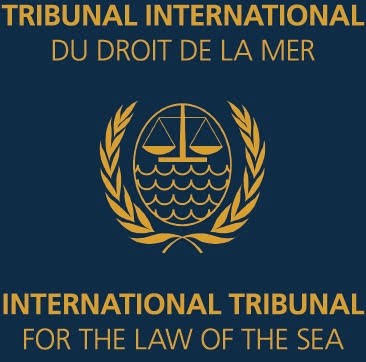International Tribunal for the Law of the Sea

Disclaimer: Copyright infringement is not intended.
Context:
- The International Tribunal for the Law of the Sea (ITLOS) delivered a “historic” pronouncement on climate change last week.
About the pronouncement
- Clarifies obligations of countries regarding marine pollution amid climate impacts.
- Key Obligations Outlined:
- Marine Pollution: Countries must prevent, reduce, and control pollution from anthropogenic greenhouse gas (GHG) emissions.
- Marine Environment Protection: Obligations include addressing ocean warming, sea-level rise, and acidification.
- Due Diligence: States must take “all necessary measures” guided by the best available science.
- Precautionary Approach: It is required in the absence of scientific certainty.
- Compliance: States must align measures with climate treaties like the Paris Agreement, ensuring actions are consistent with UNCLOS.
- Implementation:
- National Systems: States must establish effective legislative and administrative frameworks to enforce these obligations.
- Enhanced Measures: States can implement more stringent measures for marine protection, consistent with international law.
Significance:
- Climate Change Interpretation: ITLOS interprets UNCLOS provisions to include climate change impacts, expanding the definition of marine pollution to encompass GHGs.
- Legal Framework: Incorporates climate change into the current UNCLOS regime, highlighting the ocean-climate nexus.
- Legal Precedent: Sets a precedent for integrating climate considerations within marine environmental laws.
- Enhanced Protection: Strengthens legal obligations for protecting fragile marine ecosystems from climate impacts.
- Policy Influence: Likely to influence national and international marine policies and climate actions.
About ITLOS:
https://www.iasgyan.in/daily-current-affairs/international-courts-and-climate-change
Source:
|
PRACTICE QUESTION Q. Consider the following statements about the International Tribunal for the Law of the Sea (ITLOS):
Which of the statements given above are correct? a) 1 and 2 only Answer: a) 1 and 2 only Explanations: ●Statement 1: Correct. ○ITLOS was indeed established by the United Nations Convention on the Law of the Sea (UNCLOS) in 1982. UNCLOS is an international agreement that defines the rights and responsibilities of nations concerning their use of the world's oceans, establishing guidelines for businesses, the environment, and the management of marine natural resources. ●Statement 2: Correct. ○ITLOS has jurisdiction over disputes and applications submitted pursuant to UNCLOS and any matter specifically provided for in any other agreement that confers jurisdiction on the Tribunal. This broad jurisdiction allows ITLOS to handle a variety of cases related to the law of the sea, ensuring comprehensive coverage and resolution of maritime disputes. ●Statement 3: Incorrect. ○It is not only state parties to UNCLOS that can submit cases to ITLOS. Certain entities other than states, such as international organizations, can also be parties in cases before ITLOS if they are permitted by the provisions of UNCLOS or other specific agreements. For instance, the International Seabed Authority and companies engaged in deep-sea mining activities under its auspices can bring cases before ITLOS. ●Statement 4: Incorrect. ○ITLOS is based in Hamburg, Germany, not in The Hague, Netherlands. The location of ITLOS in Hamburg is significant as it situates the Tribunal in a major port city with a long maritime tradition, providing a symbolic and practical connection to its mandate. |




1.png)
